Tim Isaacs: Your Past Isn’t Everything
February 19, 2020
Students sometimes feel as if they can’t relate to authority figures, such as teachers and principals, but you may have more in common with them than you think.
We all go through tough times and “we all have our weirdness, we all have our faults,” principal Tim Isaacs said.
Isaacs began to have a tough time, as many of us teenagers do, during his preadolescence. During this time he attended school at Meyzeek Middle School in Louisville, where he was placed due to forced bussing, outside of his own neighborhood. While attending MMS, his home life underwent an unfortunate shift as his parents decided to divorce.
“I’m the second child of five, and I think all five of my siblings and I have some sort of baggage from it,” Isaacs said.
Due to this situation, Isaacs found himself involved in dangerous predicaments with theft and alcohol.
“I acted out,” Isaacs said. “I was angry at the world, and so, if I was going to be miserable, the rest of the world got to be miserable with me.”
Isaacs began to do questionable things such as stealing and underage drinking. His mother tried many sources for help; church counselors, school counselors, psychologists, psychiatrists. Something had to be done, so his mother reached out to Kentucky Baptist Homes for Children, which resulted in Isaacs’ placement at the Glendale campus.
“I remember the day my mom left me at the home, every detail of it,” Isaacs said. “I couldn’t believe she left me there.”
His placement in the home was a total culture shock, as he went from the big city (Louisville) to Sonora where they say things like, “britches and yonder,” Isaacs said. After a good year at the children’s home, Isaacs returned back to Louisville and the same life he had led before.
“By March, I’m failing every class again, I’m not going to school, back to everything. Everything was the same,” Isaacs said.
After another episode of theft, his mother left it to the police.
“My mother looked at them and looked at me and said to call the police. He’s not leaving with me.”
He then realized something needed to change.
Isaacs decided to call the director of the children’s home and simply asked, “Can I come home?”
Recognition was key for Isaacs to make the change he needed, or else, “I would‘ve been dead before I was 16 years old,” Isaacs said.
“And that’s when things started changing when I recognized there was a problem. So the first thing I will tell you, the first lesson I learned was, it was not all my fault. I did not cause everything that led to me having to be there. In some sense, you could very honestly say I was a victim,” Isaacs said.
The Home and the people involved with it were immensely valuable to Isaacs’ progress. Haywood Riner, the recreation director at the Children’s Home at the time, said, “He never made excuses about the past. He always looked forward to what was going to happen in the future.”
Isaacs put his past behind him and made actions to contribute to a successful future. He said that one of the most foundational things he was taught at the children’s home was that “being a victim does not entitle you to make victims of other people. You must own your decision making. My decisions are my own, and there are consequences for your choices, and you must accept those because they are yours.”
Living at the Kentucky Baptist Home For Children was a great learning experience for Isaacs in many ways. He was a “multi-talented” young man, Riner said. Isaacs was involved in many activities while living in the Home. He played basketball, ran cross country, sang in the choir at the Home, played cageball, and several other sports activities. He was also a Red Cross certified lifeguard and refereed his peers’ sports games.
Isaacs also learned a lot about himself and how he wanted to live from then on.
“One thing you have to understand is that you can’t control anybody but you,” Isaacs said. There may be a point where even though you’re not responsible for everything that happens, the other person that is responsible may not own their part and that can’t affect who you are. Because you can’t control that, and by aligning those emotions, it is to control who you are. In a sense, you’re just victimizing yourself all over again.”
Riner, who has worked with teenagers for 45 years, has this same belief that you should “not focus on the past because you can’t change the past. The only thing you can change is the future.”
Every person has a past that they must accept but it does not have to make them who they are.
Isaacs referenced a pledge that aligns with his ways of thinking perfectly, the Alcoholics Anonymous pledge, “not to focus on the past, because you can’t change the past. The only thing you can change is the future.”
Isaacs is evidence that no matter what a person goes through, that does not define them as a person.
“I’m very grateful for what I went through. Because of that, it’s made me the person I am,” Isaacs said. “I wouldn’t wish it on anybody. But it was a journey. And it was it that led to a calling. And I think the psychiatrist was right. I don’t think I’d be here. Because I look back now at the decisions, and I consider this to be a gift that I’m going to be 53 in April. I’m incredibly grateful.”
His experiences helped shape him into the principal he is today. Isaacs was given a scholarship to Georgetown College and received his first degree. Later he came to work at the Home before getting a degree in Secondary Social Studies education. This allowed him to pursue a career in education and become a teacher, assistant principal, and eventually the principal of Central.
Riner said, “he turned his negative background situation into positive motivation, (and) he has an insight into a troubled background that most people don’t have…and that’s why he is the principal at one of the largest high schools in the state of Kentucky.”
Anyone can be a leader and change their future if they put in the work. Every person has the ability to be successful if they use skills such as, “leadership, peer respect, focus, and responsibility, which carry over into all areas of anyone’s life,” Riner said.
Seemingly, your principal is very relatable and has been through a lot. He is someone who can truly understand what you may be going through as a student and teenager.

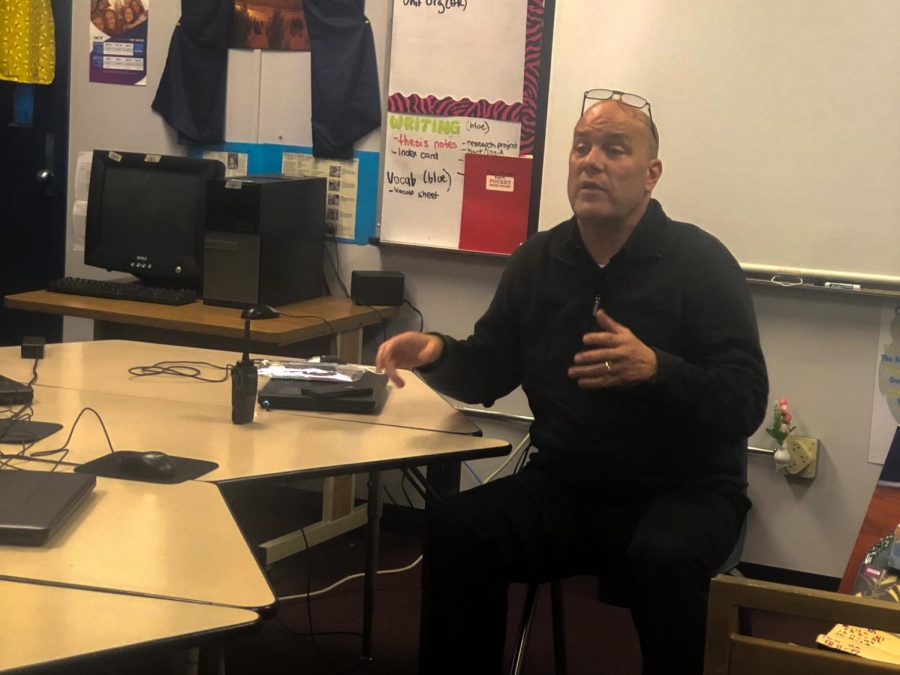
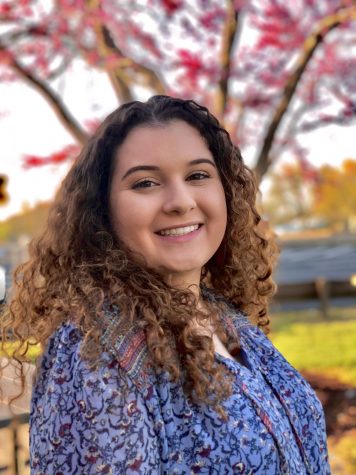
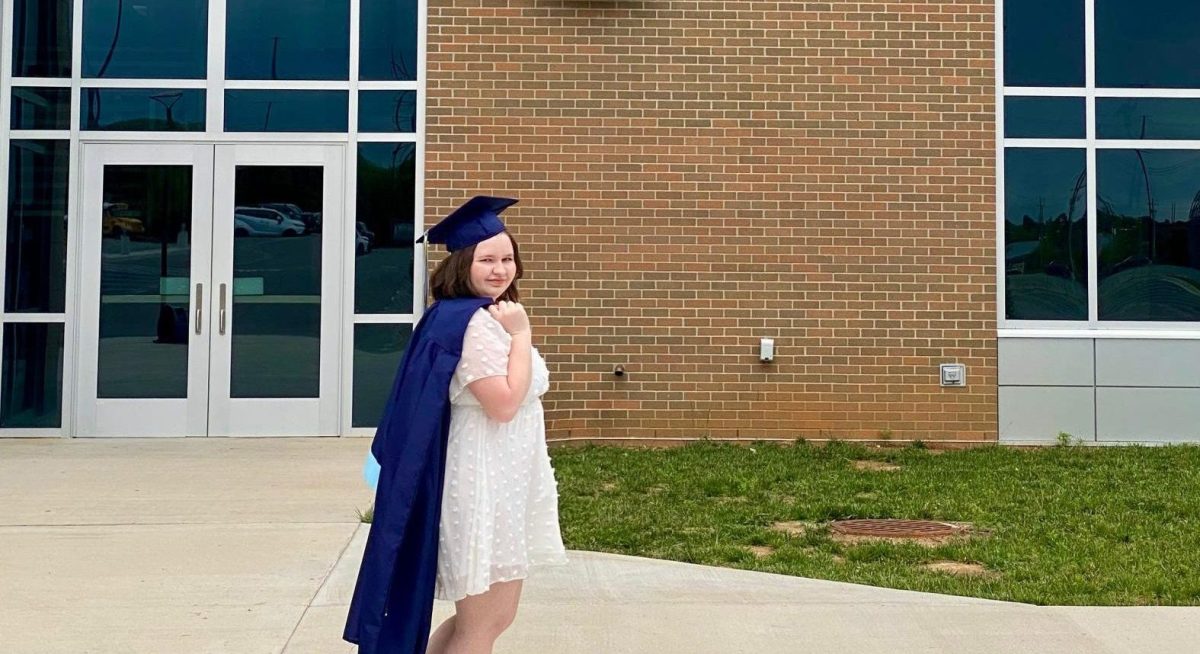





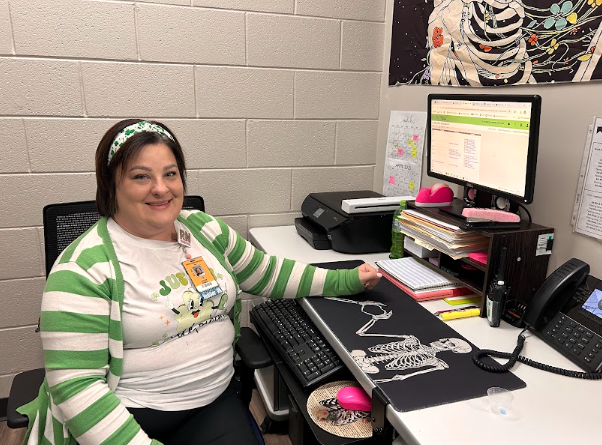
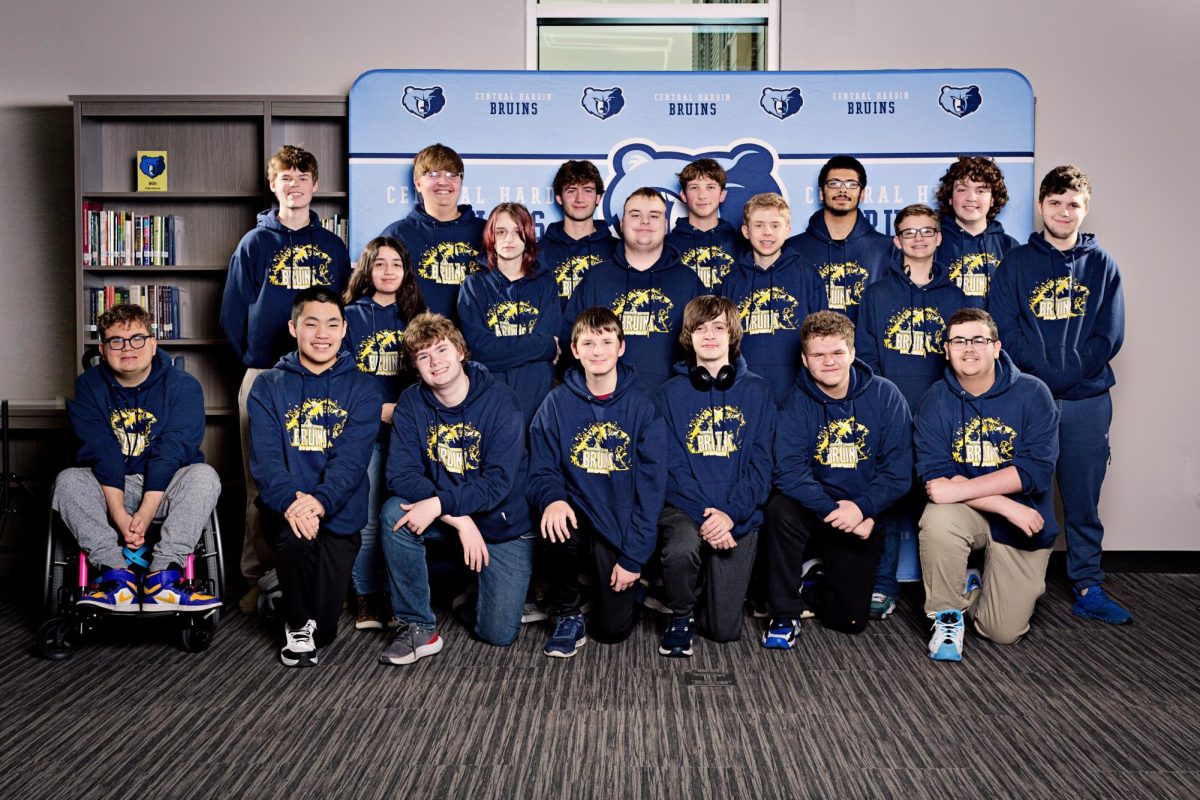






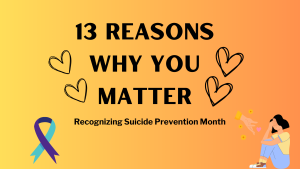
Stephanie Betts • Feb 24, 2020 at 9:51 am
Thank you for this article covering Tim Isaacs. Tim was one of my “big brothers “ when I was placed in Glendale under almost identical circumstances on January 4th, 1983. I NEVER knew Tim’s “story” of his journey of how he came to be placed at Glendale. The Tim Isaacs I knew was always one of great leadership and example for his peers. I always revered Tim as more the big brother/ hero you look up to all of your life. He led so many of us in so many ways by the way he embraced his opportunities at Glendale. We all had a story when we came to Glendale, and unfortunately, many of the children whom were placed their were not placed by their parents as troubled youth but rather came there after horrific experiences before they got there as wards of the state whom often were in multiple foster home placements prior to there road “home”. Tim was such a positive example for so many of us, I always just assumed he had been placed there by the state. Most of the boys were always running away when they first came- almost like wild horses who could never trust- I never remember Tim “running”- and as a home kid, that was a pretty big deal back then. This article moved me because hearing Tim’s journey provided me with beautiful glimpses into my own story- making Tim even more of a role model for me than he already was over the years. The saddest part of being a home kid is knowing Glendale is gone now, but hearing Tim has gone on to still have a way to influence the youth of Hardin County in a highschool environment is a huge win for a community we all still would consider the truest home we ever had. I have also made it my career to work with children as a Pediatric RN. Ironically, after having 3 boys of my own, I ended up with two “bonus” babies unexpectedly two and a half years ago who were severely medically fragile and “orphans” in their own rite. I know I never would have had this path in life if it hadn’t been for the same love I received at Glendale. I love the quote, “It’s not how you start, it’s how you finish.” I believe because it is truly a perfect quote for so many of us who came out of Glendale still progressing in life. I will be forever connected and grateful to so many of the very same adults who Tim mentioned along with many others and many of my peers who I will forever consider my true brothers and sisters. These are the people who define God’s intention for each of us- leave this life and those around you a little better than the way you once found them.❤️
Tammy LeGrand • Feb 23, 2020 at 11:01 pm
This man has always and will be a grower in the education field I wish I would have listened a little bit closer and understood more but I understand everything that him and Glendale children’s home was trying to do for me and I respect so much now I thank you so much Mr. Isaac and appreciate you more than anything
Sandra Abbott • Feb 23, 2020 at 10:51 pm
Tim Isaac’s is an outstanding person. When I was only 13 I was sent to Glendale Childrens Home where he was an Acivities Director and so much more. So many of us looked up to him. I learned alot from him and from being in the Home. Things I learned I still use to this day. I also try to teach my kids alot of what I learned there. He always listened to you whenever you had any kind of problem. And he had a solution. I’m very thankful that i got to learn from him and to get to know Mr. Isaac’s. He’s a very great and wise man.
BessieRickard • Feb 23, 2020 at 10:48 pm
NICELY WRITTEN THIS MAN DESERVES SO MANY MEDALS HE’S HELPED ALOT OF US THAT WAS IN TERRIBLE SITUATIONS HE MADE US SEE THERE WAS LIGHT AT THE END OF THE TUNNEL WE JUST HAD TO MAKE THE RIGHT TURN WHEN IT CAME TO THE FORK IN THE ROAD I KNOW MYSELF HAS WELL HAS ALLT OF THE KIDS FROM GKENDALE IN 94 95 HE MADE A BIG IMPACT IN OUR LIVES AND WE ALL ARE SO GRATEFUL THAT HE TOOK THE TIME TO GUIDE US TIM ISSACS THANK YOU FOR ALL YOU DONE FOR ALL OF US WE OWE YOU FOR THE WAY OUR LIVES TURNED OUT AND I HOPE YOUR STUDENTS KNOW OR REALIZE THEY HAVE THE BEST PERSON ON THERE TEAM
Erin Murphy • Feb 22, 2020 at 7:14 am
I really enjoyed reading your article, it will let young students know their principal will show empathy for any difficult situation that they might be faced with, they have someone to turn to that can be a force for change. He will teach self respect, and accountability, while also extending grace.
Ashlin DeWitt • Feb 21, 2020 at 5:07 pm
Mr Isaac’s is such an amazing man. He is a very good principal teacher and mentor if I was to go back to high school again I would go back to high school so I can go see Mr Isaac’s!!!! Keep up the great work Me Isaac’s nobody would be good teenagers if it wasnt for you getting us back to where we need to be.
Brad Isaacs • Feb 21, 2020 at 10:14 am
This is a very well written piece, I’m glad to see your Readers get a good perspective on a great teacher (principal) / leader / mentor / man.
Brent Vance • Feb 20, 2020 at 9:10 pm
Very well-written! As a Central alumnus and old editor for the Central Times (class of 2011), I’m honestly extremely jealous that you got to cover this story.
Not only did you show your student body that their principal is a relatable person and that there is hope for the future, but you also highlighted a great man’s rise to his current position in which, he affects arguably thousands of young people’s lives for the better.
Thank you for writing this and keep up this kind of solid journalism!
Brent V.
Deborah Warren • Feb 20, 2020 at 6:32 pm
It is blessing to read about Tim Isaac’s growth from the boy we knew into a fine principal. I enjoyed the read.
Jennifer Black • Feb 20, 2020 at 1:01 pm
Tim Isaacs had made such an impact on so many students! This man should be recognized for all he has done, to include saving many students who were choosing the wrong plan but were steered back onto a better road solely by Isaacs! I know personally he is a man I will never forget and I cherish the relationship we had and the impact he has had on my life!! So much love to this incredible teacher, mentor and friend!
Haywood Riner • Feb 19, 2020 at 12:04 pm
Carlie, What a Great tribute to an absolutely fine man.
I am a better man today because of the influence Tim Issacs had in my life. It is such a Blessing for me to observe his success and I know that he is making a difference in the lives of the students at Central Hardin High School.I often talk with people who praise his CARING leadership.
Carlie, you have written a magnificent story that both honors your principal and serves as an inspiration to others who need ENCOURAGEMENT ! H.Riner
Carlie Clements • Feb 20, 2020 at 11:14 am
Thank you so much Haywood, I’m very glad I was able to hear all the great things you had to say about Mr.Isaacs.